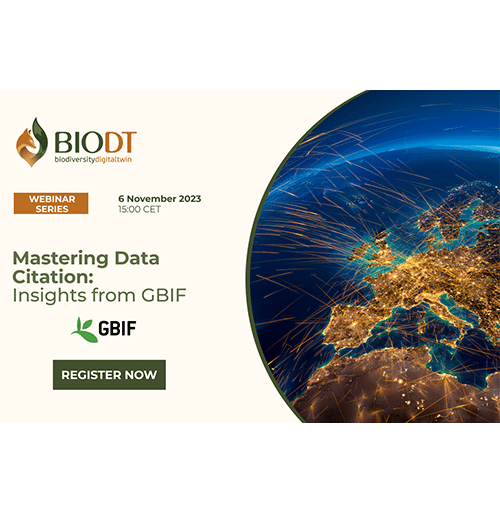Mastering Data Citation: Insights from GBIF
Home | Events | Researchers | Mastering Data Citation: Insights from GBIF

Online, 6 November 2023.
This is a series of webinars. If you want to learn more, you can check out the second webinar here.
Acknowledging and citing data is a crucial practice that enhances transparency, credibility, and collaboration in biodiversity research. It recognises the hard work of data collectors and curators while facilitating the sharing and integration of essential biodiversity datasets. In partnership with the Global Biodiversity Information Facility (GBIF), this BioDT webinar is scheduled for November 6 to highlight the vital aspects of recognising and crediting such datasets.
The webinar will offer best practices for standardised citation of datasets, ensuring proper acknowledgement of creators and sources. This webinar is a valuable resource for researchers, data scientists, conservationists, students, and anyone interested in biodiversity research and data management. It promises to make data more accessible and reusable, providing insights and resources that can benefit seasoned experts and field newcomers.
Visit this page to register.
Agenda
- 15:00 – 15:10 – A general introduction of the BioDT project – Hanna Koivula (CSC)
- 15:10 – 15:35 – Data citation: the GBIF way – Daniel Noesgaard (GBIF)
- 15:35 – 16:00 – Q&A